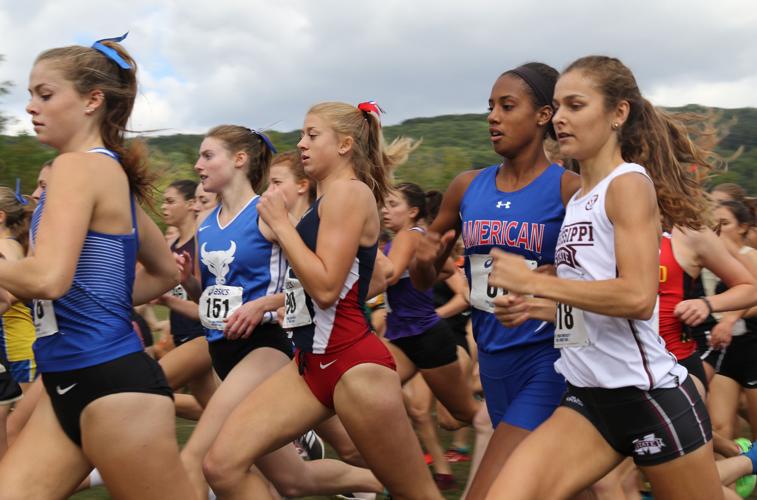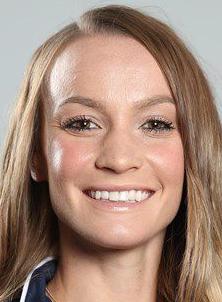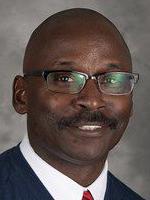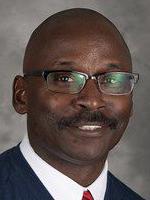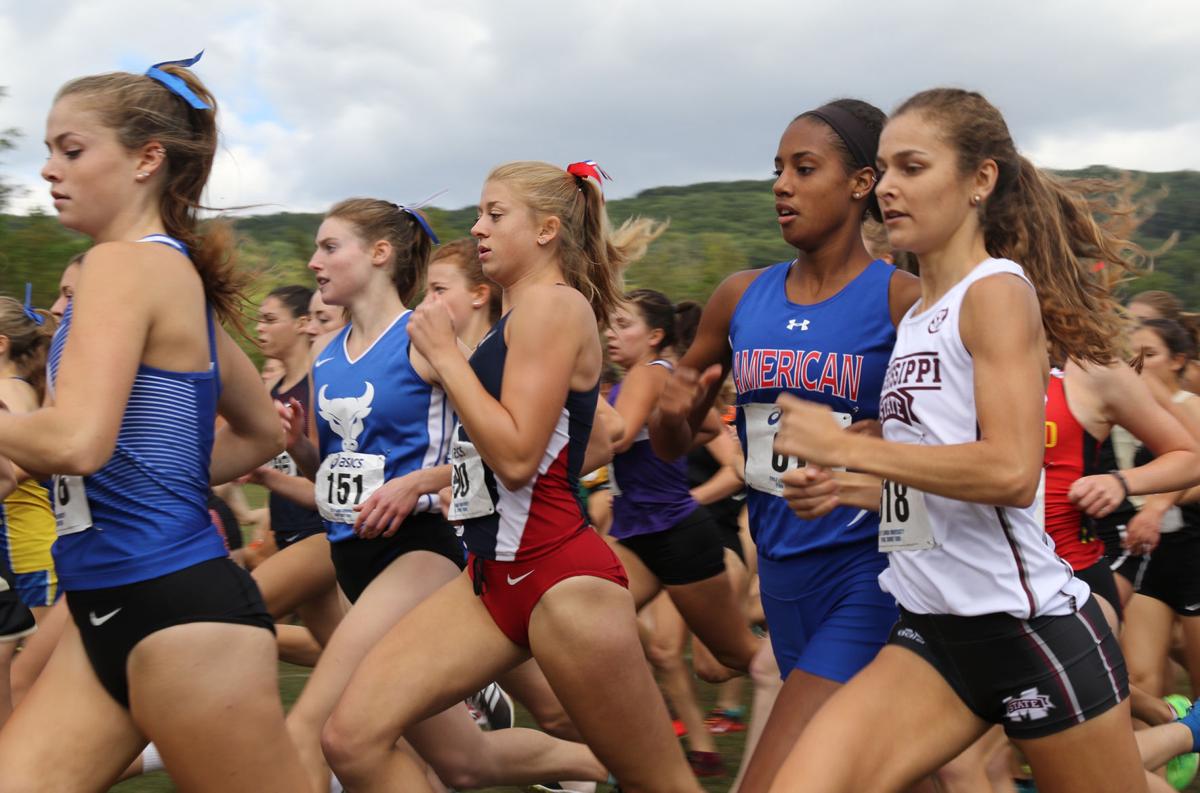In the month since the Arizona Daily Star shared eight former University of Arizona athletes’ claims of abusive and neglectful practices on the cross country team, 12 more have come forward.
On Aug. 16, the Star detailed allegations by eight former members of the team that included sexual harassment and assault by teammates; bullying and emotional abuse by teammates and coaches; practices, such as public weigh-ins, that experts say can cause eating disorders; athletes being pushed to train while or until injured; coaches’ neglect of serious mental health issues among athletes; and coaches’ failure to report allegations of sexual discrimination to the appropriate authorities.
The eight women who initially contacted the Star backed up their claims with emails, court and other legal documents, as well as witnesses to corroborate their statements. They said that while they know many athletes have had great experiences under head coach Fred Harvey, they did not, and their complaints were often ignored by Harvey, assistant track and field coach James Li, and assistant men’s and women’s cross-country coaches Tim Riley and Hanna Peterson, who replaced Riley in 2018.
One expert described the athletes’ allegations as the makings of a “rotten culture,” and within hours of the article’s publication, former UA athletes began reaching out to the Star to back up the women’s claims and share experiences of their own.
In total, 13 former UA track and field athletes contacted the Star in response to the article, with 12 reporting similar experiences. The 13th athlete reported a positive experience training under Harvey.
“We all — student-athletes, coaches and administrators — have significant responsibility and accountability in the student-athlete experience,” athletic director Dave Heeke said in a prepared statement, noting that he is the father of two Division I athletes. “It is disheartening to hear when our student-athletes believe their voices have not been heard or who believe that the multitude of formal reporting processes we have in place to address concerns have not worked for them.”
Most of the athletes who spoke to the Star produced records or corroborating evidence that they did complain to coaches or other entities on campus, but they felt their concerns were either ignored or not dealt with adequately.
Heeke said that the department “will never stop trying to do better for our students” and will continue to “build a foundation through intense focus on the values of integrity, compassion, support, teamwork, communication, sportsmanship and good citizenship.”
Several male members of the cross country team reached out to the Star to corroborate their female teammates’ claims about cross-country coach Peterson, saying she also treated them poorly and would routinely make rude comments, speak negatively about them to other members of the team and report them for disrespect and insubordination to Li and Harvey when they tried to talk to her about her actions.
Another male teammate, who was on the team during cross-country coach Riley’s tenure, said that he was sexually abused by a female teammate and when he told Li, the coach tried to blame him for the incident. When the woman continued to harass the man, he again reported her behavior to Li, and this time to Harvey, who he said told him to “stay in your lane.”
“My safety and well-being were of no concern to the coaching staff,” he said.
After the first article was published in the Star, several athletes took to Instagram to report positive experiences with Harvey, although none of those athletes contacted the Star directly. The Star requested an interview with Harvey, who did not respond. He did, however, comment on one of the public posts, saying:
“The Human Spirit is so much more important than any performance they can display! Getting one to see their value as a person is my purpose! This fight is bigger than me, it (sic) about the Human Spirit and what’s right for the Coaching World. Times are changing but I can’t let what’s most important in sport change! We have to develop people to be better for our World! Coaches are not Gods...We can’t make Olympic Finalists, we just develop the plan.”
On Twitter, current UA athlete Trevor Volpe said the allegations about the team’s culture were misstated, adding, “I respect the voices of my teammates and acknowledge their claims. However, Coach Harvey handles uncontrollable situations with great poise. Whenever an issue is brought to his attention ... it is dealt with.”
Some of the athletes who contacted the Star in response to the article described positive interactions with Harvey but do not agree with Volpe’s assessment of Harvey’s handling of situations. These athletes include Connor McCabe, who competed with the cross country and track teams in 2018 and 2019.
“The argument isn’t that Harvey’s a bad guy, it’s that he didn’t do his job to the fullest extent,” McCabe said.
McCabe particularly referenced a situation involving Maksims Sincukovs, a hurdler who was expelled from the UA this spring after kicking through the window of a teammate’s apartment and attempting to sexually assault her.
“At the end of the day, (Sincukovs) admitted to trying to get into her apartment and Harvey still advocated for him,” McCabe said.
While many of the former athletes who came forward after the first article detailed similar instances to those of the original eight women, some shared new claims, including mistreatment by coaches of students who struggled academically after coming to the UA with diagnosed learning differences.
Another new allegation involves what several athletes called a disregard for the team’s safety after McCabe reported being assaulted by a transient in a public restroom at Himmel Park, where the team trains on a regular basis.
McCabe is one of three athletes who was willing to be named in this story, with the others citing various reasons for wishing to remain anonymous, including the cyberbullying of two women who spoke to the Star after the first article’s release, the stigma surrounding mental health issues and learning difficulties, and for many, a desire for a fresh start at a new school.
‘I’ve never been more unhappy’
McCabe said that during his three seasons and roughly year and a half at the UA, he only interacted with Harvey twice — one of those times being on his recruiting visit in the spring of 2018.
By the time he arrived in the fall, the athletes he was introduced to during his visit had already left the team. “There’s only one person left from the recruiting class ahead of me, and half my recruiting class has quit or transferred,” McCabe said.
McCabe, who was recruited by Riley, arrived in the fall to train under Peterson, a former UA runner who was in her first semester as coach.
“She would always preach that we’re here to run, but when it came to doing that in practice, their focus came more to our personal lives,” McCabe said. Peterson was more focused on how he spent his free time than on what he was doing to become a better runner, he said.
Before leaving the team, McCabe talked with Li about Peterson’s methods. During the meeting, Li said that because the team had so many athletes who had misbehaved in the past, they didn’t want the same thing to happen again, according to McCabe.
“They’re fearful of the team culture going south, almost to the extent that they’re making a bad team culture by doing so,” McCabe said. “I’ve never been more unhappy than I was on that team.”
One day during McCabe’s first semester at the UA, the team was training at Himmel Park, as was common. McCabe ran over to use the public restroom, noticing a homeless man sleeping on the floor as entered the building. He went into the stall and, as he left, the man grabbed McCabe’s genitals.
McCabe said he smacked the man’s hand away and left the restroom, immediately telling Li what had happened.
“He asked me if he was still there. I said yes, and we proceeded to run the workout,” McCabe said. Later in the day, roughly 12 hours later, McCabe called police from Li’s office, eventually going to the station on his own to file a report.
Police determined the incident was a case of unwanted touching but didn’t get far in their investigation.
In the weeks that followed, Li would periodically ask McCabe if he was all right, but the team, which included both men and women, kept working out at Himmel Park.
“It was a very weird situation. I never could go there comfortably after that,” McCabe said. “I don’t feel it was handled correctly. It felt like team safety wasn’t a priority. It was my first season there, and that set a precedent for how it would be.”
He said Peterson told him he needed to eliminate hobbies and distractions and focus on running.
“It was incredibly isolating to be on that team,” McCabe said, adding that after finally leaving the school at the end of the fall 2019 semester, he didn’t run for six months.
“This thing that you’d done your whole life and you love, all of a sudden it’s the bane of your existence,” McCabe said.
‘I was mentally, emotionally and physically broken’
During Kirsten Vergara’s time competing with the UA’s cross country team, she suffered numerous injuries, including a stress fracture, due to track. She ended up taking a medical retirement in her junior year.
“After my junior year I was mentally, emotionally and physically broken,” said Vergara, an international athlete who was recruited out of Canada. While running for the UA, Vergara was diagnosed with fractures to her tibias, femurs and more.
Vergara said before coming to the UA in 2015, it was her dream to compete in the NCAA, adding that it draws the best athletes in the world and she wanted to be a part of that. She said she hopes by sharing her experience, there will be positive change for future international athletes.
Vergara said that she never had an issue with Harvey, who was always kind and made her feel part of the team even after her medical retirement.
Her experiences with other cross country coaches were not as positive. As Vergara was repetitively injured, their frustrations grew.
Vergara said they would constantly remind her of her scholarship, giving her the sense that they wanted her to perform better, despite her injuries.
“That made me feel like a waste of money and a disappointment,” Vergara said, adding that it felt like she was being kicked when she was already down and made her question her athletic ability.
During the first week of her junior year, Vergara logged the most mileage she had ever run in a week. By the end of the week, she couldn’t walk and was later diagnosed with a stress reaction in her left femur and right tibia. Stress reactions are precursors to fractures and arise from trauma or overuse.
Vergara said that it was the athletic department’s medical staff that saved her, offering her the option of a medical retirement and helping her through the process. Medical retirements are offered to student-athletes who suffer career-ending injuries that do not allow them to compete at their previous level.
The retirement ensured that Vergara could continue receiving treatment for her injuries, keep her scholarship and complete her education, for which she says she was grateful.
‘I feel like I was robbed’
Two former track and field athletes who approached the Star after the first article arrived at the UA with diagnosed learning difficulties, of which their coaches were aware.
Both former athletes asked to remain anonymous, concerned about being retaliated against and seeking fresh starts from their time at the UA.
One of the athletes, a female runner who was on the team from 2015-16, said she fell in love with track when she was 4 years old, always knowing she’d go to college to “be as spectacular as I could.”
She was recruited by sprints and relays assistant coach Francesca Green, passing on a full-ride scholarship to a smaller school in order to attend the UA as a walk-on.
“I went to the school that assured me they would take care of me,” she said, adding that the UA didn’t follow through on its promise. “From my freshman through junior years, I only traveled to one meet. Every other time, (Green) left me at school to work out by myself.”
The woman said she fell into a dark depression. She said she was placed on academic probation when her GPA fell below 2.5.
One “traumatic day” she was called into a meeting with Harvey, her academic adviser and several academic counselors.
“Coach Harvey said, ‘You don’t want to be here. If you did, your grades wouldn’t look like this,’” the woman said. “No one asked me if I needed help or if there was anything that could be done. Everyone acted like because I didn’t have a 4.0 GPA, I didn’t want to be on that team.”
The woman said that despite her lifelong love of running, by her junior year she hated the sport.
“I still haven’t stepped foot on a track,” she said. “I feel like I was robbed of the chance to be great and show my talents.”
‘The coaches kind of threw me away’
The second athlete who struggled with his grades came to the UA as a transfer student.
“During camp, Coach Li had a good message about not shooting ourselves in the foot and doing everything ethically,” the man said. “That really spoke to me.”
But by November, things changed. After the situation involving Sincukovs, the team began having culture meetings, which the man said turned into open forums for teammates to speak their minds.
“It was very divided,” he said. “In a team environment that’s trying to win, we shouldn’t be fighting each other.”
Outside of the meetings, it was also tense, with teammates talking about one another behind their backs.
In addition, Peterson made it apparent she didn’t like him, he said, disregarding suggestions and treating him poorly in and outside of practice.
By December, the man, who said he has struggled with ADHD and other learning difficulties since sixth grade, noticed his grades slipping.
“I was walking on eggshells around (Peterson) and Coach Harvey with that feeling of having to be perfect every day,” he said.
During the offseason, the man had become academically ineligible, but by the end of the fall semester he had restored his eligibility to compete.
Still, he said Li told him that the other coaches had decided he would sit out the track season and that his status would be reevaluated the next school year.
“After that, the coaches kind of threw me away,” the man said. “They wanted nothing to do with me. I texted and called Harvey, and he would ignore it. I would walk into his office to talk to him and he’d say he had a meeting and would leave.”
The man finished the semester with a 3.25 GPA without academic support. He tried to talk to his coaches and persuade them to let him back on the team, but received no response. Eventually, he received a letter from Harvey saying he would not be invited back to the team.
“For two months I was stuck in this mental state of wondering what I did wrong, and I just kept it inside,” he said. “That environment, I don’t ever want anyone else to go through that. I’m strong-willed, and it really impacted me.”
‘I felt like I was a problem’
As one of the top three performers on the cross country team, Kayla Young, who was on the track team from 2017-20, said Peterson tipped her off about random drug tests multiple times, and insinuated more than once that she had pulled Young’s name off the testing list.
“The (coaches) definitely had a divide in their heads between the fast kids and not,” Young said. “But whenever I was injured, or had mental health issues going on, I felt like I was the problem.”
Young says she watched her friends and teammates endure harassment and abuse, but felt herself becoming isolated when she tried to speak up to coaches and other team members.
During her sophomore year, Young said her mental health began to deteriorate because of stress and other issues. It continued to get worse, as did the isolation from her teammates.
Eventually, the recurring drama and negativity surrounding the team became too much for her. When she told Peterson she wanted to quit, Young said she was met with opposition and implausible offers, including never having to attend practice. She held firm, leaving the team and the UA this spring.
“It’s almost all like a bad dream now since I moved back to Denver,” Young said.


